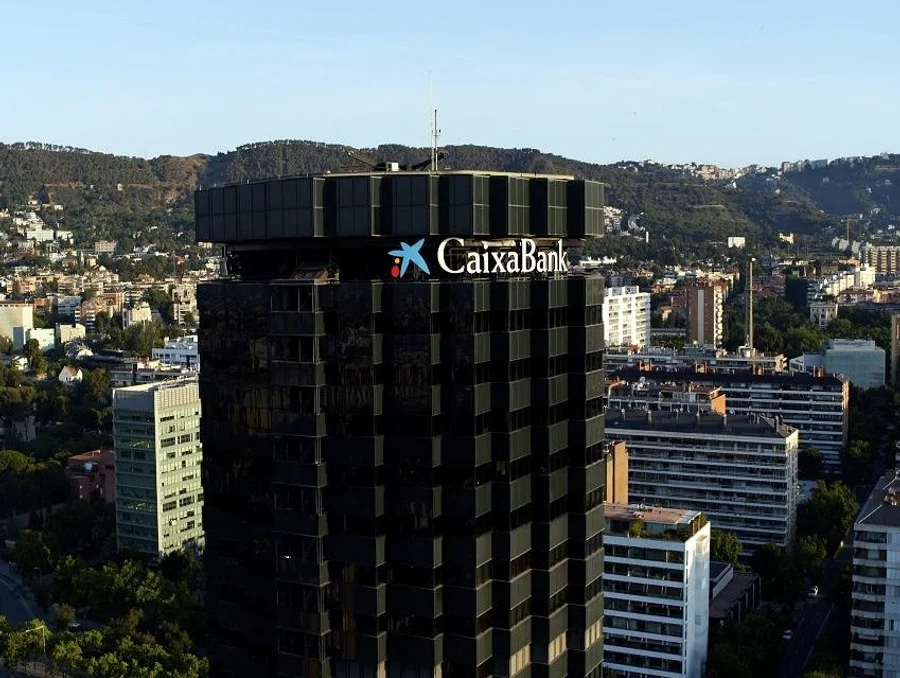CaixaBank, Spain’s third-largest lender by market value, has been selected to participate in a global initiative to transform international payment systems through tokenisation and smart contracts.
The project, named Agorá, is led by the Bank for International Settlements (BIS) and the Institute of International Finance (IIF).
It brings together central banks and private sector firms to explore how tokenisation—the digital representation of assets on programmable platforms—can enhance wholesale cross-border payments.
Named after the Greek word for “marketplace”, the Agorá Project brings together seven central banks and select private sector entities to investigate how tokenisation can enhance wholesale cross-border payments. The project will explore the integration of tokenised commercial bank deposits with tokenised wholesale central bank money on a programmable financial platform.
Tokenisation and smart contracts in focus
The Agorá project will investigate the integration of tokenised commercial bank deposits with tokenised wholesale central bank money on a public-private programmable core financial platform. This approach could potentially streamline the monetary system while maintaining its two-tier structure.
The initiative seeks to address several inefficiencies in current payment systems, particularly in cross-border transactions. These include disparities in legal and regulatory requirements, operating hours and time zones across different jurisdictions.
Financial integrity controls, such as anti-money laundering (AML) measures and customer verification processes, will also be examined. Currently, these checks are often duplicated multiple times for a single transaction, depending on the number of intermediaries involved.
This public-private collaboration aims to address several structural inefficiencies in the current international payment landscape. These include disparate legal and regulatory requirements, varying operating hours across time zones, and the complexities of financial integrity controls such as anti-money laundering measures and customer verification processes.
Seven central banks are participating in the project: Bank of France (representing the Eurosystem), Bank of Japan, Bank of Korea, Bank of Mexico, Swiss National Bank, Bank of England and the Federal Reserve Bank of New York. The IIF will act as the private sector coordinator.
CaixaBank’s digital credentials
CaixaBank’s selection for the Agorá project follows its involvement in the European Central Bank’s (ECB) digital euro prototype development in 2022. The Spanish lender was the only bank chosen to participate in that initiative, co-developing a prototype for a peer-to-peer payments wallet for the potential digital euro.
With 11.8 million digital banking users, CaixaBank claims the largest digital customer base in the Spanish financial sector. The bank’s subsidiary, CaixaBank Payments & Consumer, manages 32 million issued cards and holds a 30.3% market share in purchase invoicing on the Iberian Peninsula.
The bank operates its own technology subsidiary, CaixaBank Tech, which focuses on technologies such as artificial intelligence, cloud computing and big data to enhance customer service and develop new financial products.
Implications for the fintech industry
The Agorá project’s focus on tokenisation and smart contracts aligns with broader trends in the fintech industry. Many startups and established financial institutions are exploring blockchain-based solutions for various aspects of banking and payments.
However, challenges remain in terms of regulatory alignment and technical standardisation across different jurisdictions. The Agorá project aims to address some of these issues by bringing together central banks and private institutions from multiple countries.
This isn’t CaixaBank’s first venture into cutting-edge payment technologies. In 2022, the European Central Bank (ECB) chose CaixaBank as the sole bank to participate in developing a prototype P2P payments wallet for the digital euro. This experience in public-private collaboration on regulatory-driven innovation projects likely contributed to the bank’s selection for the Agorá Project.

